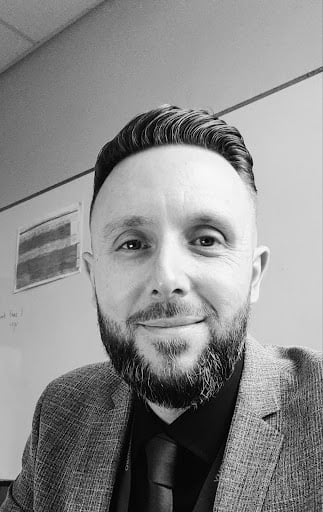Converting Between Hexadecimal & Denary (Cambridge (CIE) O Level Computer Science) : Revision Note
Denary to Hexadecimal Conversion
How do you convert denary to hexadecimal?
Method 1 (denary to binary to hexadecimal)
To convert the denary number 28 to hexadecimal, start by converting the denary number to binary
128 | 64 | 32 | 16 | 8 | 4 | 2 | 1 |
|---|---|---|---|---|---|---|---|
0 | 0 | 0 | 1 | 1 | 1 | 0 | 0 |
Split the 8 bit binary number into two nibbles as shown below
8 | 4 | 2 | 1 |
| 8 | 4 | 2 | 1 |
|---|---|---|---|---|---|---|---|---|
0 | 0 | 0 | 1 | 1 | 1 | 0 | 0 |
Convert each nibble to its denary value
0001 = 1 and 1100 = 12
Using the comparison table, the denary value 1 is also 1 in hexadecimal whereas denary value 12 is represented in hexadecimal as C
Denary 28 is 1C in hexadecimal
Method 2 (divide by 16)
To convert the denary number 163 to hexadecimal, start by dividing the denary value by 16 and recording the whole times the number goes in and the remainder
163 ➗16 = 10 remainder 3
In hexadecimal the whole number = digit 1 and the remainder = digit 2
Digit 1 = 10 (A)
Digit 2 = 3
Denary 163 is A3 in hexadecimal
Hexadecimal to Denary Conversion
How do you convert hexadecimal to denary?
Method 1 (hexadecimal to binary to denary)
To convert the hexadecimal number B9 to denary, take each hexadecimal digit and convert it from its denary value to 4 bit binary (nibble)
B (11) |
| 9 | ||||||
|---|---|---|---|---|---|---|---|---|
8 | 4 | 2 | 1 | 8 | 4 | 2 | 1 | |
1 | 0 | 1 | 1 | 1 | 0 | 0 | 1 | |
Join the two nibbles to make an 8 bit number (byte)
Convert from binary to denary
128 | 64 | 32 | 16 | 8 | 4 | 2 | 1 |
|---|---|---|---|---|---|---|---|
1 | 0 | 1 | 1 | 1 | 0 | 0 | 1 |
(1 x 128) + (1 x 32) + (1 x 16) + (1 x 8) + (1 x 1) = 185
Hexadecimal B9 is 185 in denary
Method 2 (multiply by 16)
To convert the hexadecimal number 79 to denary, start by multiplying the first hexadecimal digit by 16
7 ✖ 16 = 112
Add digit 2 to the result
112 + 9 = 121
Hexadecimal 79 is 121 in denary
Examiner Tips and Tricks
Remember that the exam is non-calculator, if you are not confident multiplying and dividing by 16 then use method 1 on both conversions

You've read 0 of your 5 free revision notes this week
Unlock more, it's free!
Did this page help you?

